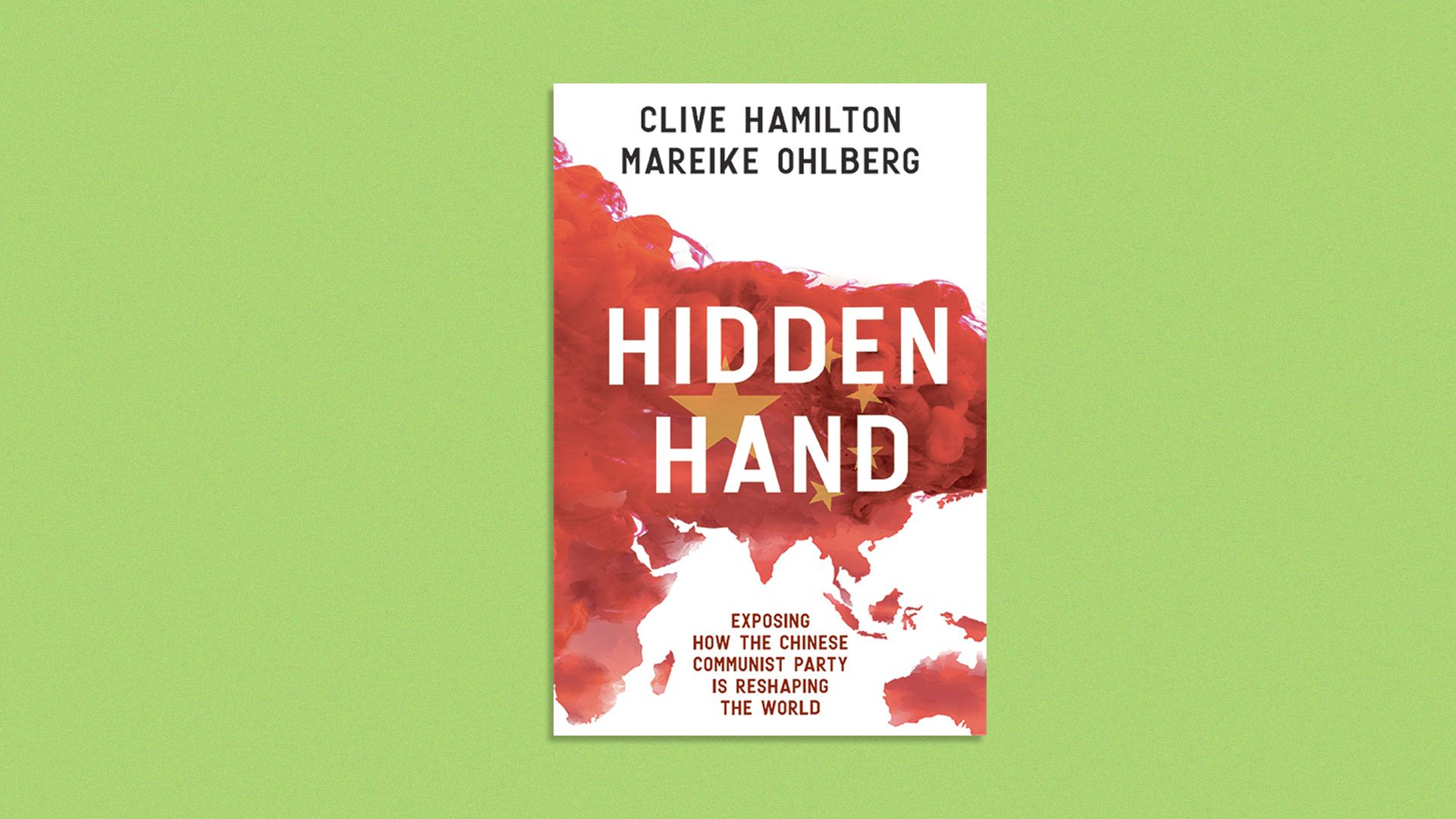New book examines Neil Bush's China links
Add Axios as your preferred source to
see more of our stories on Google.

Image credit: Hardie Grant Publishing
A new book documents China's influence in North America and Europe, zeroing in on how the Chinese Communist Party co-opts the elite in democratic societies.
Why it matters: Growing scrutiny of China's ties with top business and political figures in the U.S. is making it riskier for them to openly laud Beijing.
In "Hidden Hand: Exposing How the Chinese Communist Party is Reshaping the World," co-authors Clive Hamilton and Mareike Ohlberg argue that the CCP has carefully cultivated elite "friends" abroad who can be relied on to speak up on China's behalf, subtly influencing the policymaking environment.
- “When considering Beijing's structure of influence in the West, we need to look at the world the way Beijing does: by studying where the centers of power lie in each country, and determining who are the elites in business, politics, academia, think tanks, media and cultural institutions," the authors write.
- The CCP's "friends" and "enemies" paradigm is a well-studied strategy of the United Front Work Department, the party's political influence arm.
Beijing's goal: China's leaders have sought to ensure the U.S. doesn't treat China like an enemy, no matter how hard Beijing works to undermine democratic institutions and interests around the world.
- But the West's strategy of "engagement" with China hasn't worked, Ohlberg told Axios in an interview, and Western leaders need to find a "more principled strategy" than engagement.
Case study: Hamilton and Ohlberg take a close look at Neil Bush, the third son of George H.W. Bush, and his links to China.
- Bush serves as nonexecutive chairman of SingHaiyi, a real estate company belonging to Gordon Tang and Huaiden Chen, a Chinese couple who attracted attention in 2016 for a $1.3 million donation to Jeb Bush's presidential campaign.
- Jeb Bush's super PAC was later fined for accepting the illegal foreign donation, which was funneled to the super PAC via a company on whose board Neil Bush sits. (The company, APIC, which is wholly owned by a Chinese company, was also fined.)
What he's saying: Bush has frequently praised China's governance system, repeated common CCP talking points, and decried the recent "demonization" of China in U.S. politics.
- American-style democracy "would not work for China” and would be "destabilizing," Bush said at a July 2019 forum in Hong Kong.
- At a December 2019 forum hosted by the Chinese government in Guangzhou, Bush said in an interview with Chinese state broadcaster CGTN that "one country two systems" was working "very very well" in Hong Kong and that "outside influence" was motivating the protesters.
More details: In 2017, Neil Bush founded the George H.W. Bush Foundation for U.S.-China Relations, a Houston-based organization that pushes for closer ties to China.
- The Bush Foundation works closely with several organizations that are directly linked to the Chinese Communist Party, including the Chinese People's Association for Friendship with Foreign Countries, and the China-U.S. Exchange Foundation.
- One Bush Foundation board member, Florence Fang, founded the Northern California Peaceful Reunification Society, a branch of a Beijing-based organization that is directly overseen by the United Front Work Department.
- The Bush Foundation did not respond to a request for comment.
The bottom line: The Chinese Communist Party knows how to reward its friends with access and opportunities.
Go deeper: China's influence operations are getting harder to hide
